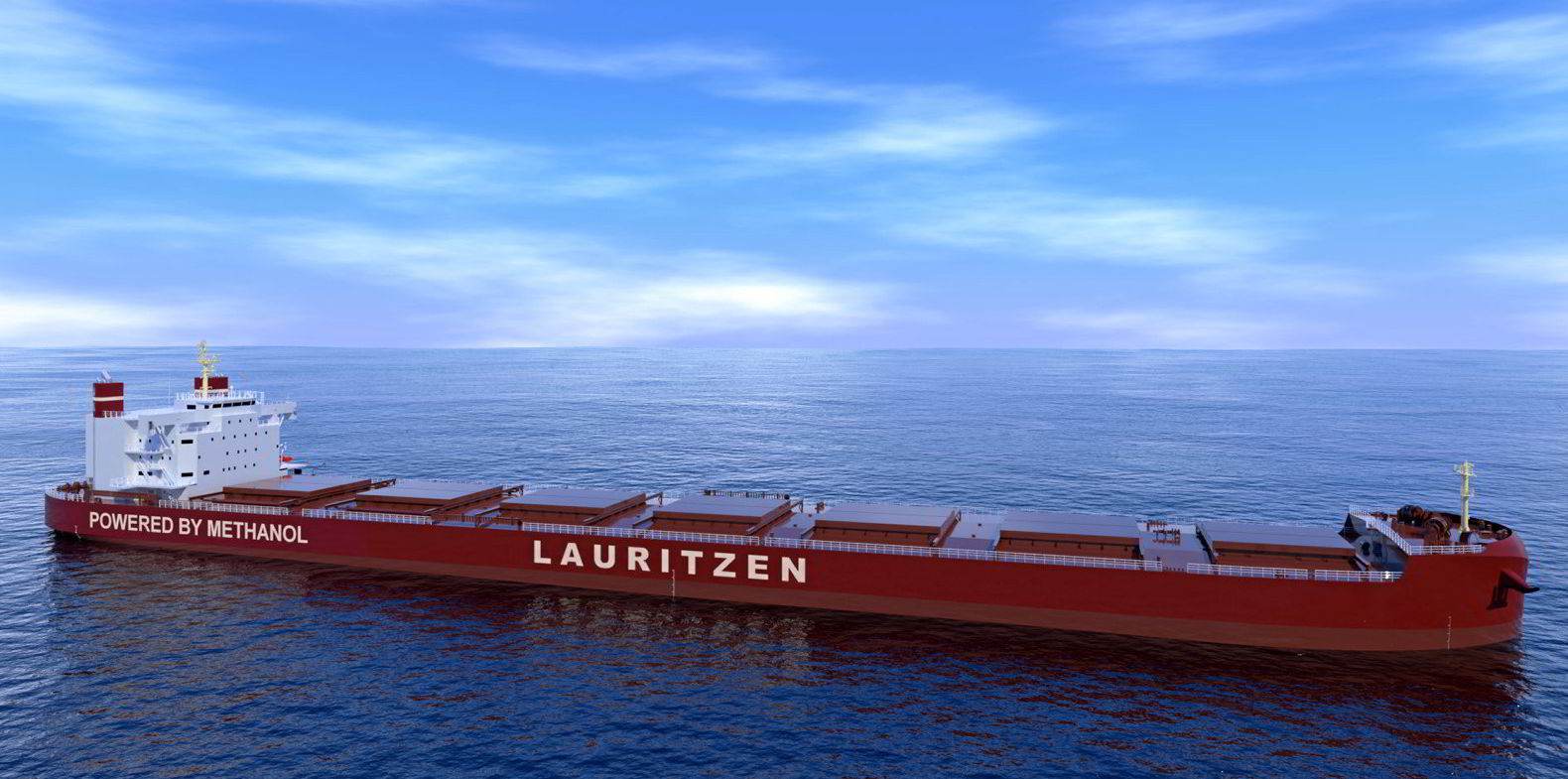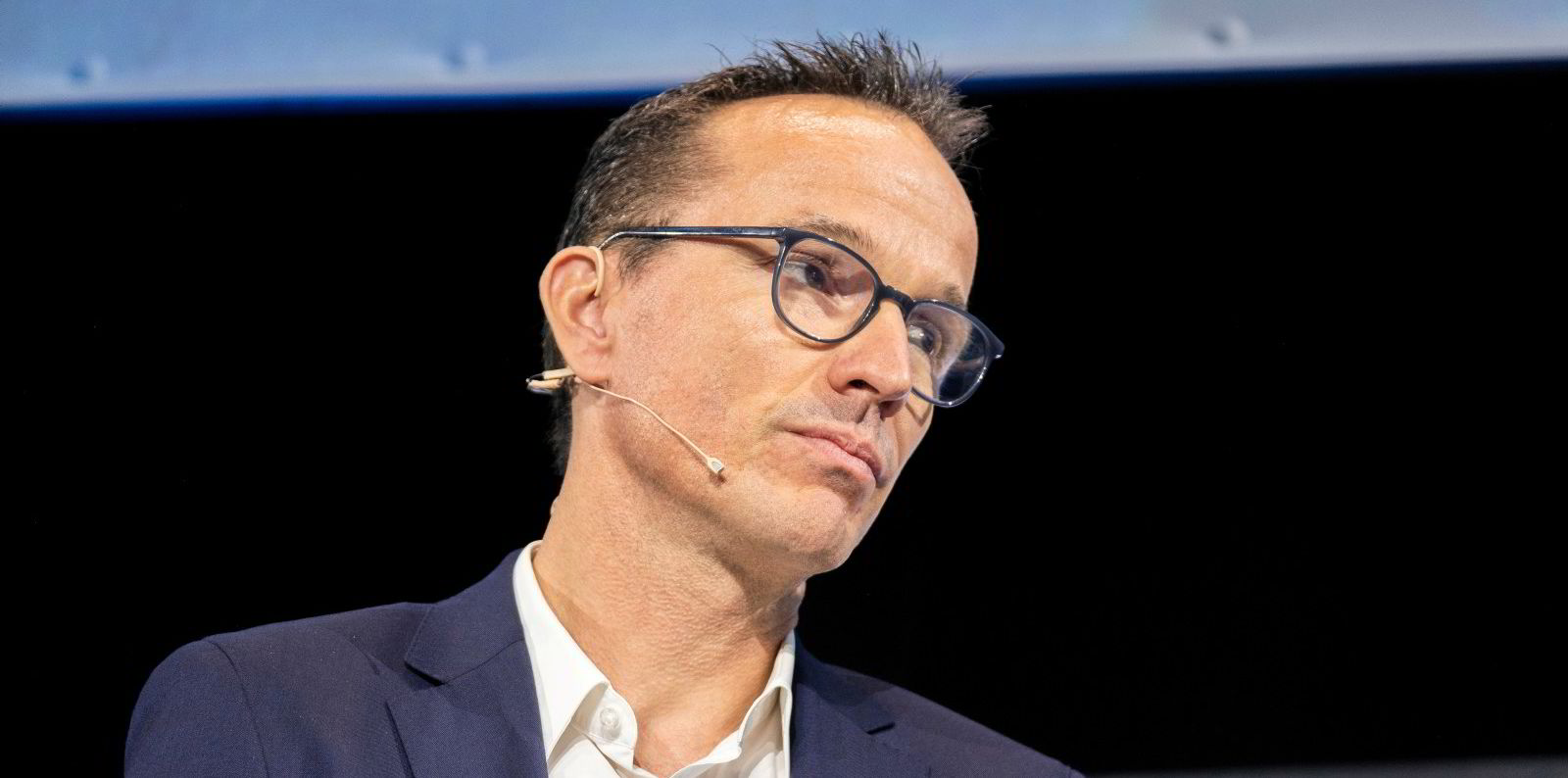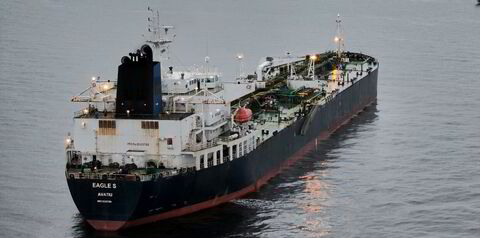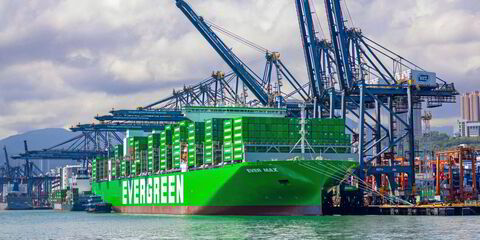Danish owner J Lauritzen has signed a letter of intent to build at least two methanol dual-fuelled kamsarmax bulk carriers in Japan, backed by long-term time charters to Cargill.
The 81,200-dwt kamsarmaxes will be built by Tsuneishi Shipbuilding and will commence minimum seven-year time charters to Cargill when they are delivered in 2026.
“We are very happy with this transaction, as it is important for J Lauritzen and Lauritzen Bulkers to participate actively in the decarbonisation of the shipping industry, and we are proud to be able to do so in a visionary partnership with Cargill, who are sharing our ambition to truly drive change in our industry,” J Lauritzen’s CEO Kristian Morch said in a release on Monday.
The ships will be able to trade with zero-carbon emissions when powered by green methanol and biodiesel.
Morch told TradeWinds the bulkers will be fitted with MAN B&W dual-fuel engines that can switch seamlessly between very low-sulphur fuel oil and alternative fuels.
Jan Dieleman, Cargill’s president of Ocean Transportation, said he was looking forward to partnering with J Lauritzen to “help move the industry forward in the zero-carbon fuel space”.
“It is great to see reputable companies like J Lauritzen joining the decarbonisation journey with such a bold step,” Dieleman said.
The duo will be owned by a new company called Lauritzen NexGen Shipping, which J Lauritzen and Lauritzen Bulkers said they intend to use as a platform for further investments in zero-carbon and future-proof assets for shipping.
The joint venture between J Lauritzen and Cargill has been facilitated by Copenhagen Commercial Platform (CCP), which is led by long-time dry cargo specialist Christian Bonfils.
CCP will be involved in operating and further developing the joint venture, the companies said, without giving further details.

First movers in methanol
TradeWinds reported in October that Cargill was in talks with three or four parties for methanol-fuelled bulk carriers after launching a tender for proposals a few months earlier for four to six ships.
This was followed by news in January that Cargill and Japanese owner Mitsui & Co had together placed the first-ever order for two methanol dual-fuelled bulkers.
Data from Clarksons shows the two ships are scheduled for delivery in late 2024 and early 2026 respectively.
Tsuneishi won another order for a methanol dual-fuelled ultramax bulker in February, which will hit the water in 2025. The owner behind the order has not been disclosed.
A small but growing number of shipping companies, led by Danish container shipping giant AP Moller-Maersk, have now booked newbuildings fuelled by methanol.
Data compiled by classification society DNV shows that 80 methanol-fuelled newbuildings are on order for delivery dates through into 2028. Three of these vessels are bulkers, excluding the two Lauritzen vessels.
Clarksons puts the methanol-ready orderbook slightly higher at 96 vessels.
Last week saw new orders for the first methanol-capable car carriers, a series of methanol bunkering tankers and four methanol-ready chemical tankers.
“Green” methanol — made from either sustainable biomass or a combination of green hydrogen and captured carbon — is an ultra-low carbon marine fuel option for vessels, but securing a sufficient supply of the fuel is a hurdle that will need to be tackled before widespread commercial adoption is possible.




